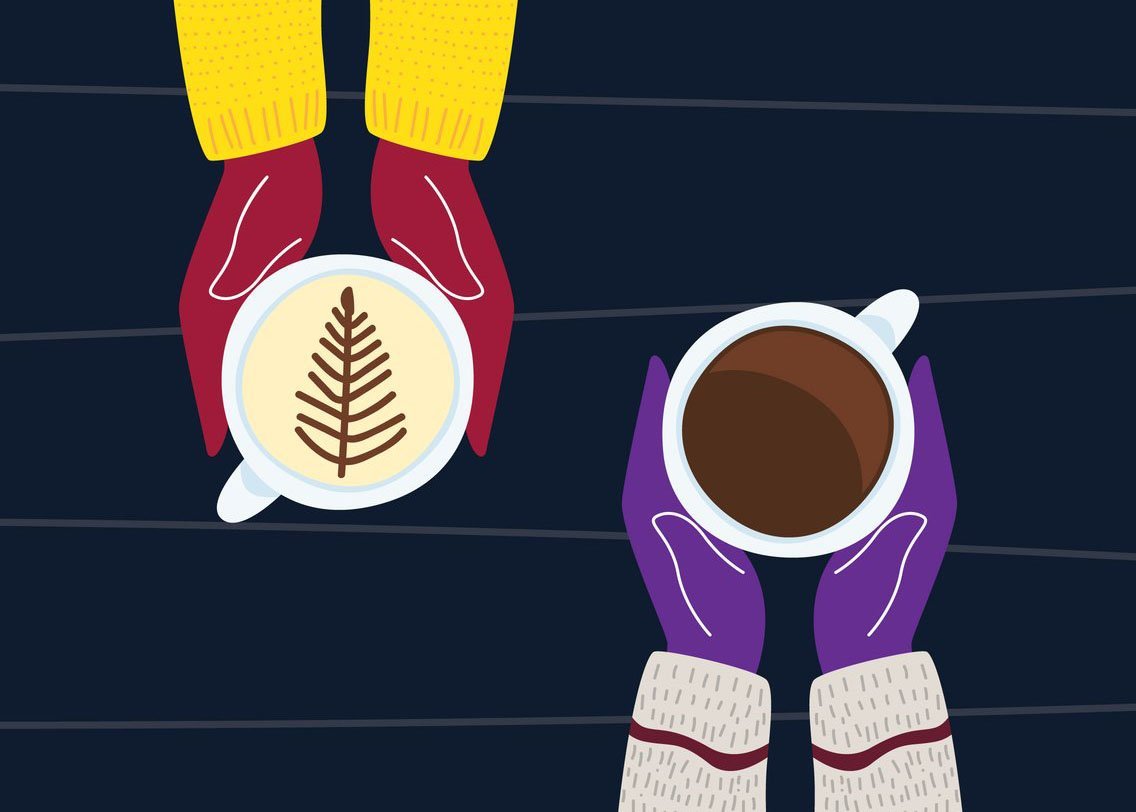Caramel Macchiatos and Courage in Recovery
I was sitting in a cozy café sipping on black coffee as my heart crawled with trepidation and my body groaned of deprivation; I had yet to embark on the sacred journey of recovery.
As a child, I had truly loved food; as my dad would always say, I ate with much “gusto.” Unfortunately, during 2020 at the time of the pandemic, my eating disorder had stripped my life of that fervent joy. I didn’t fully commit to recovery until I found myself in a dalliance with death and on the brink of total turmoil. I came to the realization that rather than hover over a chasm of hurt, I needed to channel courage and save myself.
The word “recovery” repeatedly jumbled in my brain as I grappled with how exactly it fit into my existence. While I craved the reclamation of my zest for life and desired to soar on spontaneity, I felt deeply rooted in complacency.
In fact, my contentment to reside in internal calamity was mirrored by a huge passion of mine: coffee.
Prior to anorexia’s reign over my life, I took much pleasure in ordering the most exotic drinks from my local café — whether it be a peanut butter mocha or a cereal latte; my delectable coffee orders represented my avid taste of total freedom. Once I had lost my autonomy, I ambled to a familiar stage of loss: denial. I had pretended to prefer bland, black coffee as I continued to descend deeper into a darkness unexplored. The only way to heave myself from the ditch anorexia had hollowed was through loads of compassion and self-exploration.
Things I’ve Learned While in Recovery
Ruin may precede renewal.
Life is not meant to be an appearance — rather, an experience.
Recovery is infinitive, not a finish line.
Hunger should not be viewed as a flaw.
Reflection can occur without regression.
I can have seconds, thirds, and fourths at family dinner.
I deserve nourishment — I’ve always been worthy.
It’s completely normal for our bodies to grow and evolve; don’t stand in the way of change and allow naturality to run its course.
We can flip the narrative and turn shattered to strength.
Relapse does not discount all the progress you’ve made thus far; a blip on one’s expedition is understandable, as long as you hone in on your cosmic bravery and continue fighting.
Vulnerability is both beautiful and necessary.
Embrace your support system and allow them to carry you through restoration if your legs grow tired.
I refuse to feed into the notion that I’m not enough, and I vow to feed myself unconditionally.
To overcome your eating disorder, one must disobey its decrees and do the opposite of what it bellows in your brain.
I’m unbelievably resilient, sensationally spirited, and can achieve the toughest triumphs.
Overall, I’ve learned a myriad of tidbits throughout my recovery journey, and I continue to mend the gap between my mind and body every day.
I’ve spent far too much time attempting to absolve anorexia from my identity, but I’ve changed my mind; while my disorder doesn’t define me, it will always be a part of me. It will always be the roots of my perseverance and strength. It will always embed love and tenderness within my vessel.
The naysayers will remark that it’s impossible to recover from an eating disorder in a society that praises thinness and promotes starvation, yet here I am — eating, thriving, and practicing the prospect of my full revival. I vow to overcome the devil hinging on my demise. I vow to finally choose myself.
Now here I am in the same warm café, with an illuminated lens on recovery, giddily enjoying a caramel macchiato.
Note: many poetic lines in this post were taken from my book, you need to eat, available on Amazon.


